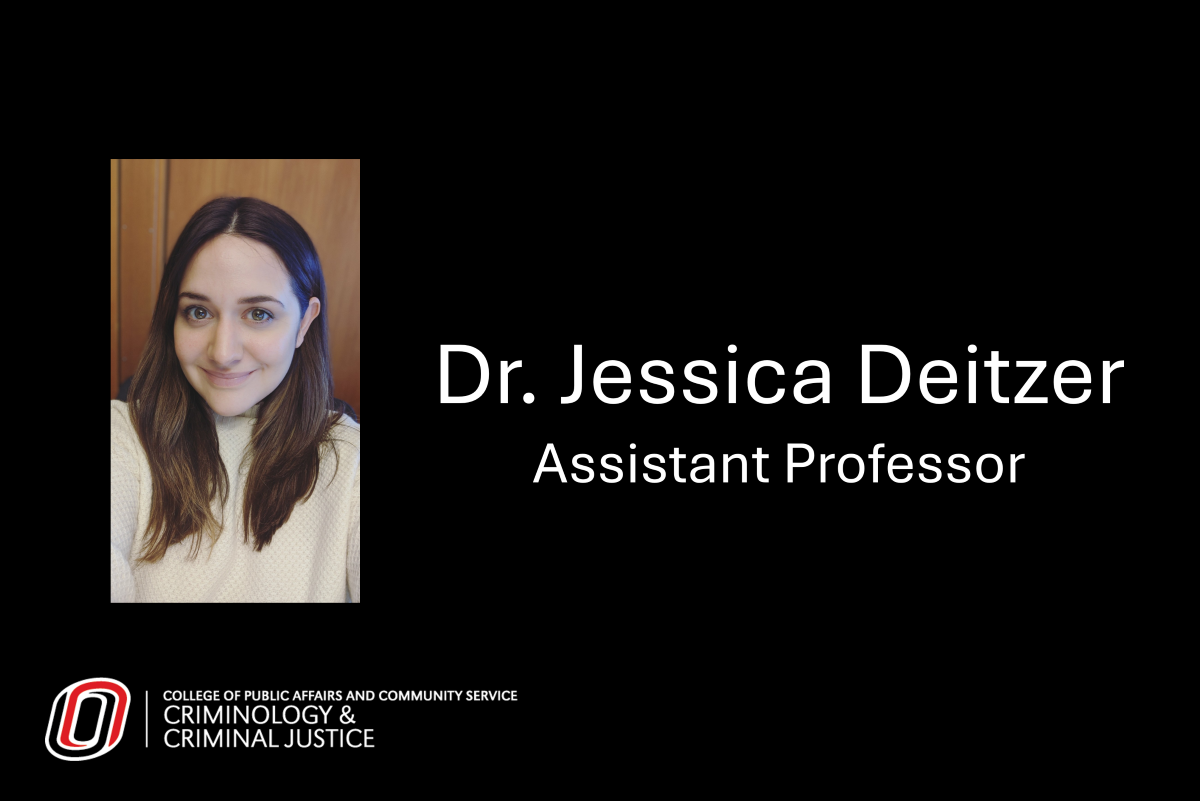UNO Criminologist Awarded Research Grant to Explore Why Some People Steer Clear of Crime
- published: 2025/04/22
- contact: Amber Evenson

OMAHA, Nebraska - Dr. Jessica Deitzer, assistant professor in the University of Nebraska at Omaha’s (UNO) School of Criminology and Criminal Justice, has received a grant from the University Committee on Research and Creative Activity (UCRCA) to further her innovative research on proactive crime avoidance.
Her project, Moving beyond single-decision scenarios: Evaluating the use of multistage vignettes to study proactive crime avoidance, investigates a lesser-studied area of criminal behavior - why and how individuals avoid risky situations before a criminal opportunity even presents itself.
“It’s an honor to receive this support,” Deitzer said. “This funding allows me and my co-authors to take a more nuanced look at decision-making, especially the early-stage choices that people make to avoid risk altogether. We're hoping this work contributes to a deeper understanding of how proactive behaviors can shape real-world outcomes.”
Deitzer and her co-authors recently piloted a survey using multistage vignettes in a drinking and driving scenario. The study introduced a new method of examining decision-making as a sequence of evolving choices rather than a single decision point. Their findings identified a critical group: individuals who said they would drink and drive if they were in a certain situation, but also said they would have avoided being in that situation to begin with, such as by choosing not to go to a bar or refraining from drinking.
These individuals, whom Deitzer refers to as “proactive avoiders,” represent a potentially powerful but overlooked avenue for crime prevention. Instead of focusing solely on preventing criminal acts once a person is in a high-risk situation, her research aims to understand how and why people make choices that keep them out of such situations entirely.
With funding from UCRCA, Deitzer will expand her study to gather more respondents, pilot test a second multistage vignette, and examine predictors of proactive avoidance. These predictors include individuals’ tolerance for risk, preference for immediate rewards, confidence in their own problem-solving abilities, and the strength of their social bonds with family, peers, and the community.
This research aligns closely with UNO’s mission to transform lives through community-engaged, pragmatic research and discovery. It also supports the university’s role as a national leader in criminology and public safety education and scholarship.
About the University of Nebraska at Omaha
Located in one of America’s best cities to live, work, and learn, UNO is Nebraska’s metropolitan university — a university with strong academic values and significant relationships with our community that transforms and improves life.